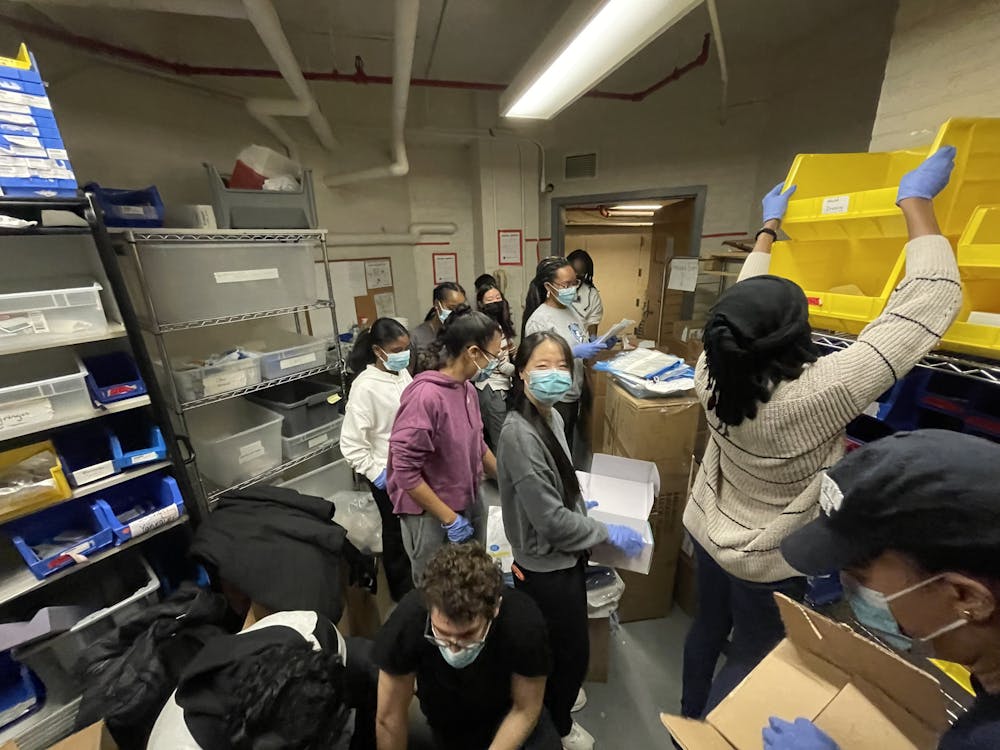Supporting Hospitals Abroad with Resources and Equipment (SHARE) is an organization that strives to enhance sustainability in the medical industry. SHARE not only redistributes unopened and unused surgical supplies from the Johns Hopkins Hospital to countries in need but also helps its members better understand those supplies and the medical scene through various shadowing programs.
According to Co-President Steven Doctorman, the organization was founded in 1991 by Dr. Richard Redett, who was inspired by a similar program at Yale University, REMEDY, which sought to donate unused medical instruments from U.S. hospitals to countries in need of them.
Doctorman elaborated on SHARE’s evolution in an interview with The News-Letter.
“We’ve changed our branding [and orientation] over time, and we’ve added a shadowing program to the organization, which boosted our engagement by offering students a reward and an incentive to engage with the program,” he said. “We’ve [also] expanded the number of operating rooms that we partner with to ensure that we can get as much medical equipment as possible.”
SHARE has since expanded from around 30 club members just a few years ago to 90 regular attendees at general body meetings (GBM). Open to any interested Hopkins student, the GBMs serve as an introduction to medicine, often involving talks by invited physicians and medical students, TED talks and small group discussions.
In an interview with The News-Letter, Co-President Kyra Bowden discussed SHARE’s various GBMs this year.
“This year, we’re [doing] specific supplies exhibitions in our meetings. We take very interesting supplies from the sorting room that have expired and cannot be used anywhere, and then we have the supplies officers do research and run a demonstration,” Bowden said. “We practice [with] really cool hands-on [activities].”
During meetings, SHARE has simulated reactions with substances that, while typically used in medicine to fill wounds by absorbing blood or internal fluids, turn into silly putty when placed in water. They’ve also used fruits to practice suturing or using surgical drills, helping their members gain familiarity with various medical supplies.
SHARE also strengthens its bonds between community members through social events and collaboration in projects. Doctorman discussed some of the organization’s recent volunteering projects.
“Recently, we partnered with an organization called Matter 360, [which has] partnerships all over the world. They’re very well established, and they’re very capable of taking the stuff we need in very large quantities and sending it abroad,” he said. “[For example], we [just] successfully transferred 1,400 pounds of medical equipment, all of which will be sent to Morocco and Ethiopia, ideally.”
In the past few years, the organization has also transferred medical supplies to Ukraine as well as conducted a mask-making program during the COVID-19 pandemic in which volunteers sewed face masks to donate to the Baltimore community.
Senior Jasmine Lee joined SHARE in her freshman year. She discussed what she valued most about the organization in an interview with The News-Letter.
“The thing that drew me to SHARE was its mission in the first place — reducing medical waste, taking what the operating rooms have discarded,” she said. “A lot of things that [operating rooms] discard are still unopened and unused; they’re still usable and can be used elsewhere, even if the hospital is trying to discard them. We have to find ways to reduce the waste [of medical supplies] where we can.”
Going forward, Bowden shared how she would like to see the organization evolve within the Hopkins community.
“I think it would be cool to see engagement in the club beyond requirements to put on your resume or to shadow, and while I know that these are not most people’s primary goals, I would really like to encourage more participation and growth away from this,” she said. “Having a greater appreciation in the club for our founding mission and the impact that we’re making is a big area of growth.”





